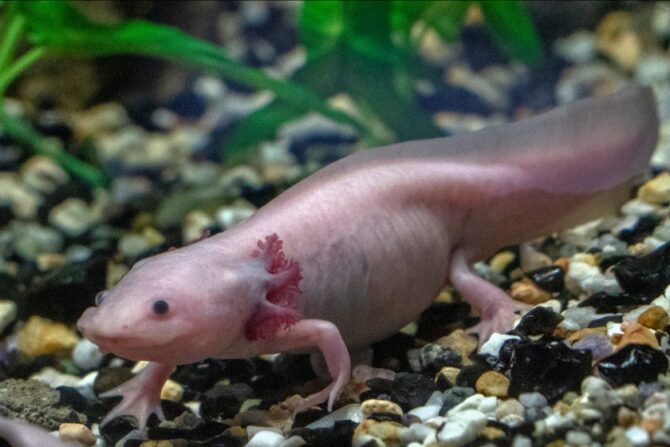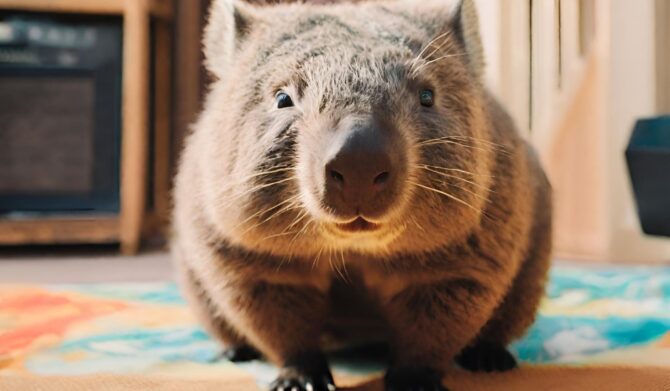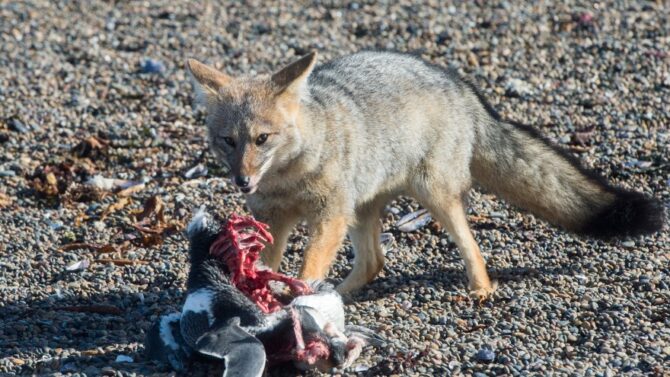Exotic pets are animals not commonly found in traditional household pet populations. They are kept as pets due to their unique and fascinating qualities.
From reptiles to primates, the different types of exotic pets can create intriguing and memorable companions.
However, owning one comes with responsibilities and challenges different from those associated with traditional pets like dogs and cats.
Before deciding to get an uncommon pet, you should understand the specific needs of the animal and the laws and regulations in your area.
This article will take a closer look at the world of exotic animals, what it takes to own one, and the different types of exotic pets.
Whether you’re a seasoned owner or considering acquiring one for the first time, this guide is for you.
Factors and Legal Issues with Owning an Exotic Pet
Before bringing an exotic pet into your home, you need to understand the laws and regulations in your area and the animal’s specific needs.1
This will help you ensure that you’re not breaking the law and are equipped to provide the necessary care.
Below are some key steps you need to take.
- Understand the laws and regulations in your area: Some countries and states restrict the ownership of certain species of exotic pets. Some species may be illegal to own in certain areas or require a special permit. Consult your local and national laws or animal control department for all the necessary regulations.
- Research the animal’s specific needs: Every exotic species has unique needs. This includes specific diets, housing requirements, and health concerns.
Proper Nutrition
The right nutrition is essential for the health and well-being of any animal, and exotic pets are no exception.
An inadequate or inappropriate diet can lead to serious health problems, including malnutrition, organ damage, and a depleted immune system.
Different species have unique dietary requirements, so it’s important to understand them when feeding your pet.
For example, reptiles may require a specific type of food or supplements, while mammals may need a varied diet that includes fruits and vegetables.
Be sure to consult with a veterinarian specializing in exotic pet care to ensure that you provide suitable nutrition for your specific species.
Housing and Living Conditions
Proper housing and living conditions are crucial for the health and well-being of exotic animals. Different species of exotic pets have unique housing requirements.
This may include a large cage or terrarium, a specialized lighting or heating system, and appropriate bedding or substrate.
For example, reptiles may require specific temperatures and lighting, while certain mammals, like primates, may need a larger space with more room to move around.
So it is important to understand these requirements when selecting a cage or enclosure.
A poorly designed cage or enclosure can lead to stress, disease, and even death.
Enrichment and Mental Stimulation
In addition to proper nutrition and housing, providing enrichment and mental stimulation is crucial for your pets.
A lack of stimulation can lead to boredom, depression, and a decline in physical and mental health.
Different species of exotic pets have unique enrichment and stimulation requirements.
While reptiles may enjoy basking in the sun or exploring new environments, mammals like primates and squirrels may benefit from climbing toys and interactive feeders.
It is essential to understand these requirements when selecting activities and toys for your pet.
Types of Exotic Pets – Complete List of Uncommon Species
Exotic pets can range from small reptiles to large primates, and each species has its unique care requirements.
Here are some of the most common types of exotic animals:
Exotic Amphibians

- Frogs (African dwarf frog, Pacman frog)
- Toads (fire-bellied toad, cane toad)
- Newts (axolotl, eastern newt)
- Salamanders (tiger salamander, rough-skinned newt)
Exotic Fish
- Koi
- Angelfish
- Crayfish
- Goldfish
Exotic Arachnids & Insects
- Tarantulas
- Scorpions (emperor scorpion)
- Spiders (tarantula, orb weaver)
- Stick insects
- Praying mantises
- Beetles (rhinoceros beetles, stag beetles)
- Cockroaches (Madagascar hissing cockroaches)
Exotic Reptiles:
- Snakes (ball python, corn snake, and other nonvenomous snakes)
- Lizards (bearded dragon, leopard gecko, chameleon)
- Turtles (box turtle, red-eared slider)
Exotic Birds
- Parrots (African grey parrot, macaw)
- Cockatiels
- Canaries
- Finch (zebra finch, society finch)
- Budgerigars (parakeets)
Exotic Small Mammals
- Ferrets
- Hedgehogs
- Sugar gliders
- Degus
- Prairie dogs
- Fennec foxes
Exotic Primates
- New world monkeys
- Monkeys (capuchin, marmoset)
- Apes (orangutans, gibbons)
Exotic Rodents
- Hamsters (Syrian hamster, dwarf hamster)
- Gerbils
- Guinea pigs
- Chinchillas
- Degus
- Rats (pet rats, fancy rats)
- Mice
Exotic Cats

- Savannah cats
- Bengal cats
- Chausie cats
- Toyger cats
- Serval cats
It’s important to note that keeping big cats as pets is generally not recommended. Exotic big felines are wild animals and can be dangerous to their owners and the public.
In many jurisdictions, keeping big cats as pets is illegal, and special permits are required to keep exotic felines.
Big cats are not domesticated animals and require specialized care and attention.
They have specific needs concerning diet, housing, and exercise and are very expensive to care for.
Summary
Exotic pets can be unique and fascinating companions, but it’s important to understand the specific care requirements for each species.
Proper nutrition, housing, and enrichment are crucial for maintaining the health and well-being of your pet. Lack of attention to these areas can lead to serious problems.
Before you buy an exotic pet, research the species and their specific care requirements. Finally, remember that owning an exotic animal is a big responsibility.
Still, with the right information, preparation, and attention to their care, you can provide a happy and healthy home for your new companion.
Thank you for reading. Have you got some feedback regarding this article? Contact the Animal Vivid editorial team.
Latest Exotic Pets Articles
References & Notes
- Exotic Animal Laws by State. FindLaw, Thomson Reuters.




